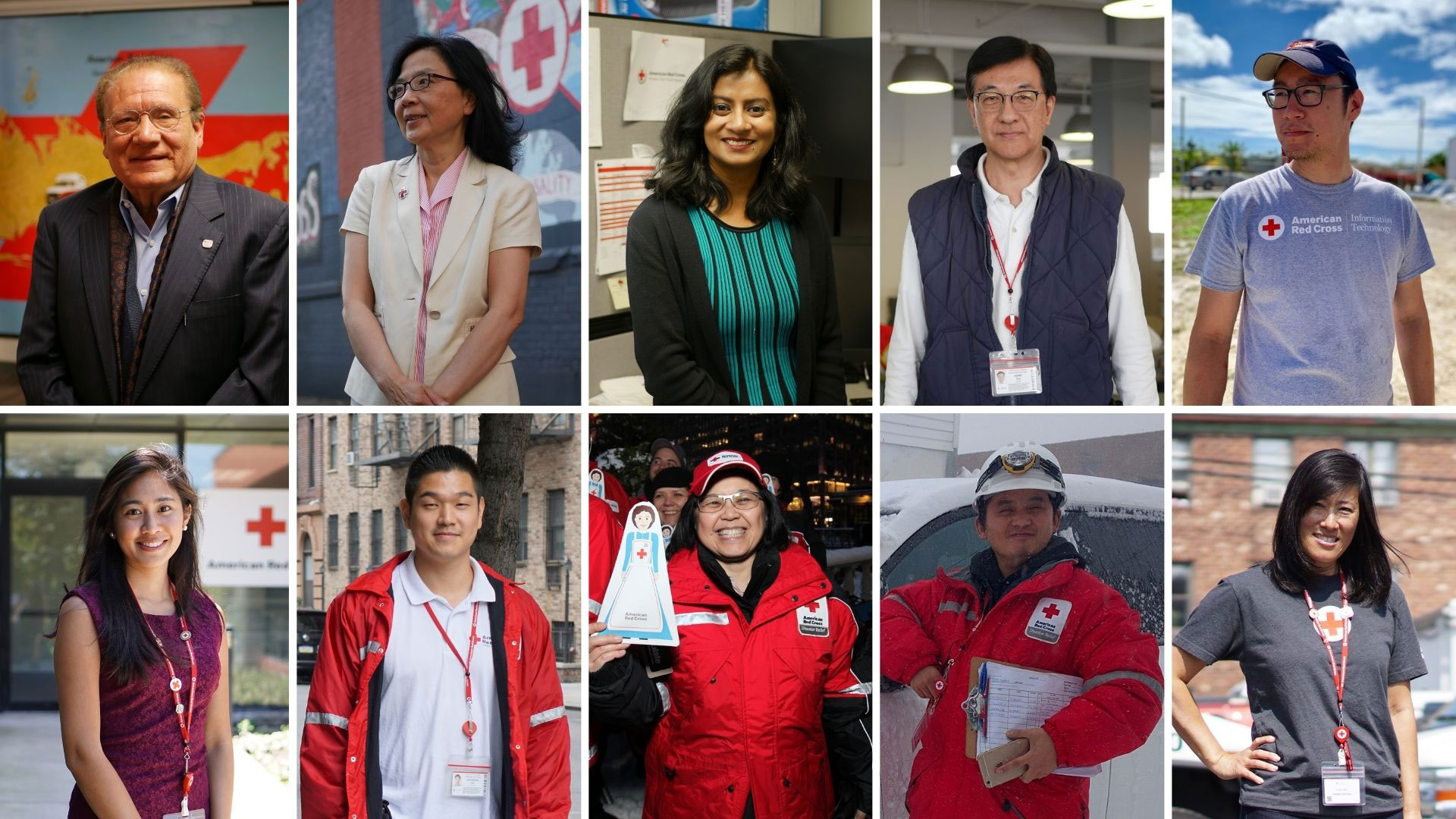

Dr. Anand has always believed that one becomes a physician because they have the heart to be of service to humanity. While traveling in Africa, Dr. Anand learned of a high incidence of renal disease in Zimbabwe, and the lack of proper treatment options such as dialysis. Considering how he could help this community, he sought out to forge a partnership with the Zimbabwe Red Cross Society. Dr. Anand also serves as a board member for the American Red Cross on Long Island. Watch the below video to learn more about his story.
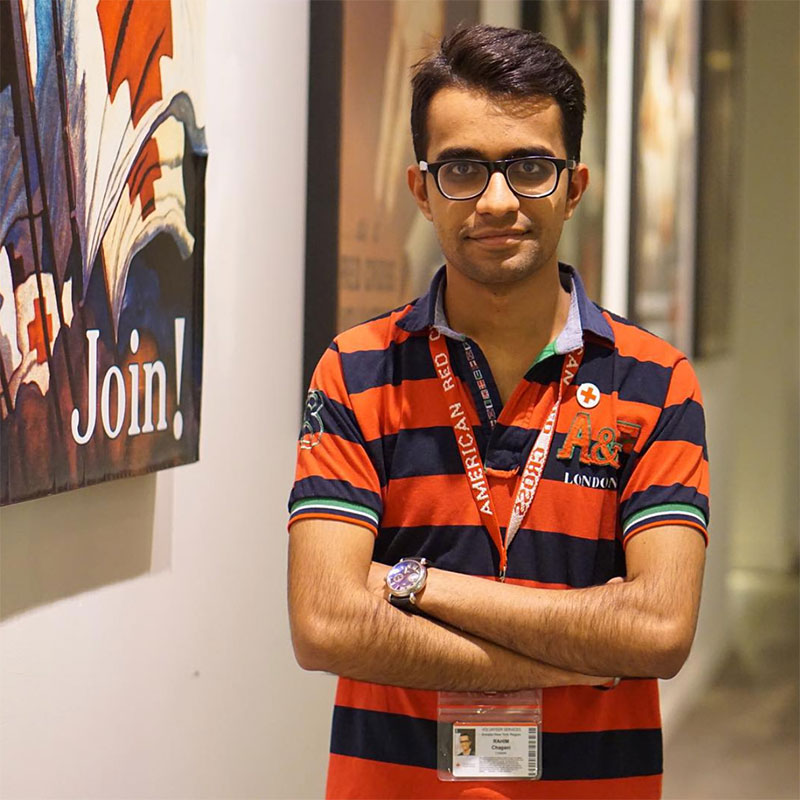
"I’ve been volunteering since I was young with different organizations. Volunteering is something that my family and I give importance to because it’s a way of giving back to society. It’s being humane. Not everything is about money."
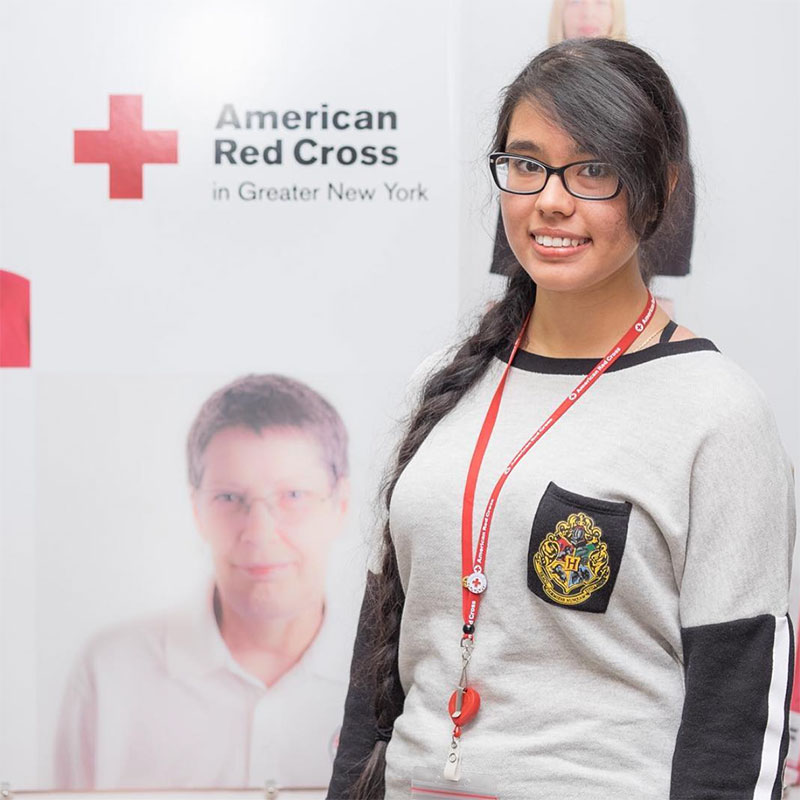
“Volunteering at the Red Cross has made me develop more as a person and a young individual. I started working with the Red Cross in freshman year of high school, and now I’m a junior. It’s been almost three crazy years working with the Red Cross. I’ve been able to meet new people. I learned how to write emails, and I learned how to really push for what I believe in and I got to build these skills which I never even knew I had. So much more public speaking came into play; I found myself in meetings with the principal about what I want to do with my club. So definitely I’ve learned new things.”
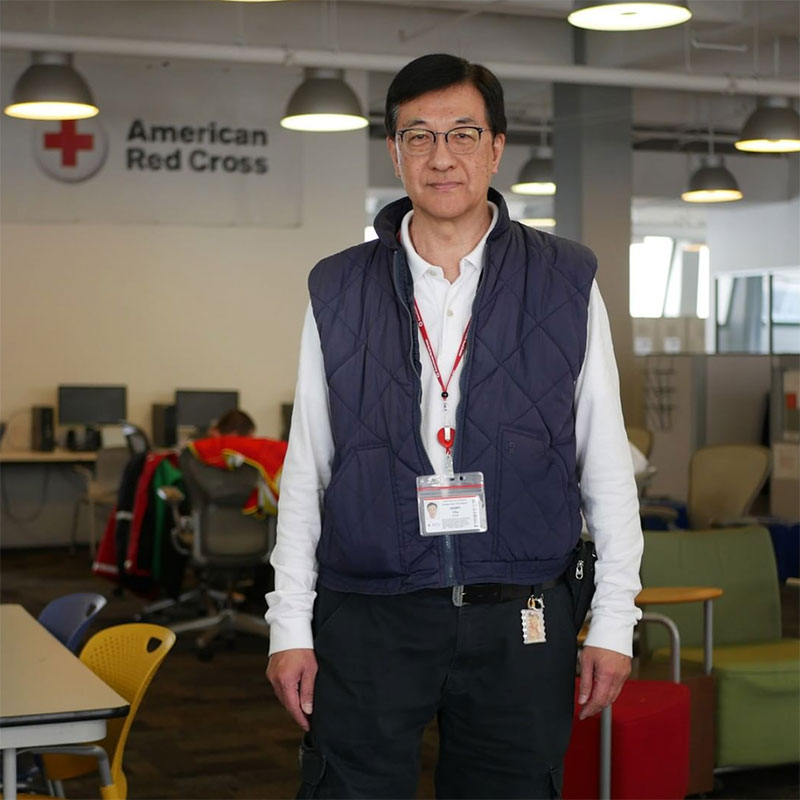
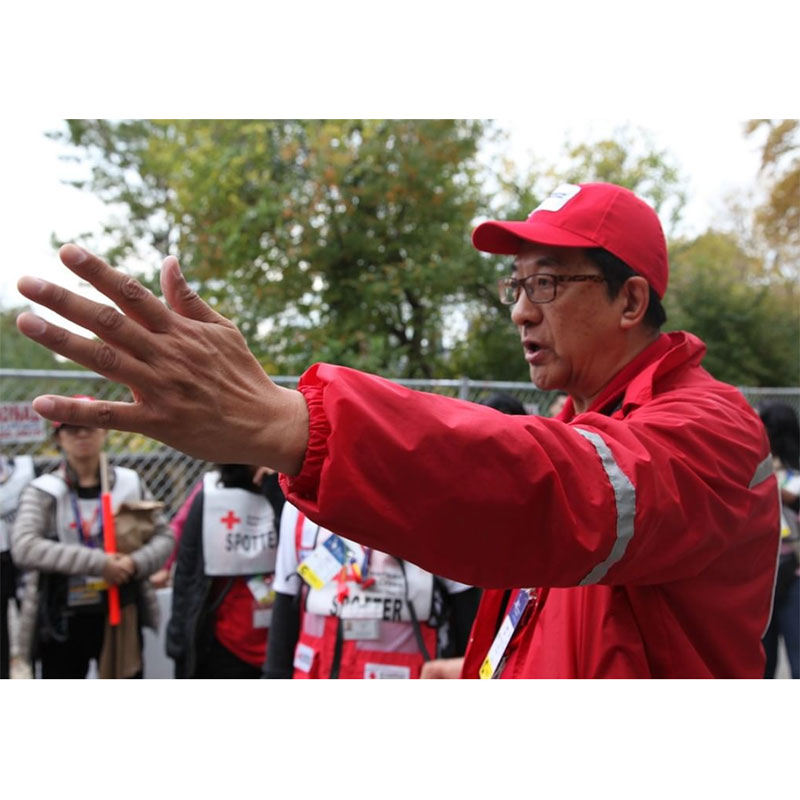
“With every response that I attended and was deployed to, the memories have always stayed with me. Sandy is still fresh in my mind because I saw a lot of sadness. As a case manager, I was out in the field and I was going door-to-door to see the people that needed help. All of the people that we visited were undocumented. It was a struggle in the beginning because they’re not sure who you are. Since they’re undocumented, they’re reluctant to talk to you or get help from you—even though they lost everything. That was hard, trying to tell them that we’re not a government agency and that we don’t share information with government agencies—that we’re an independent charitable organization that is there to help the people that suffered during the hurricane. So when it’s time to help others, I don’t hesitate, I don’t delay. What you can do right there and then means something. You realize how lucky you are because you are the one who is giving the helping hand, not the one on the receiving end. And that in itself, is a blessing already.”
“To better myself is always a struggle. I will never say that I have learned enough. I can always do a better job. I can always do a good job, but it’s hard to do the best job you can. That’s why I try not to do just one thing. I don’t just do response, but I also do home fire campaigns and I’m a spotter during marathons. There’s always opportunities that will let you participate. The Red Cross gives me a platform to be able to go out and help other people and meet other people that share the common goal of helping out those in need. Volunteering is using the Red Cross’ resources to benefit those who really need help. My only regret is that I didn’t join any sooner.”
Click here to read an interview with Henry Chu on our Greater New York blog.
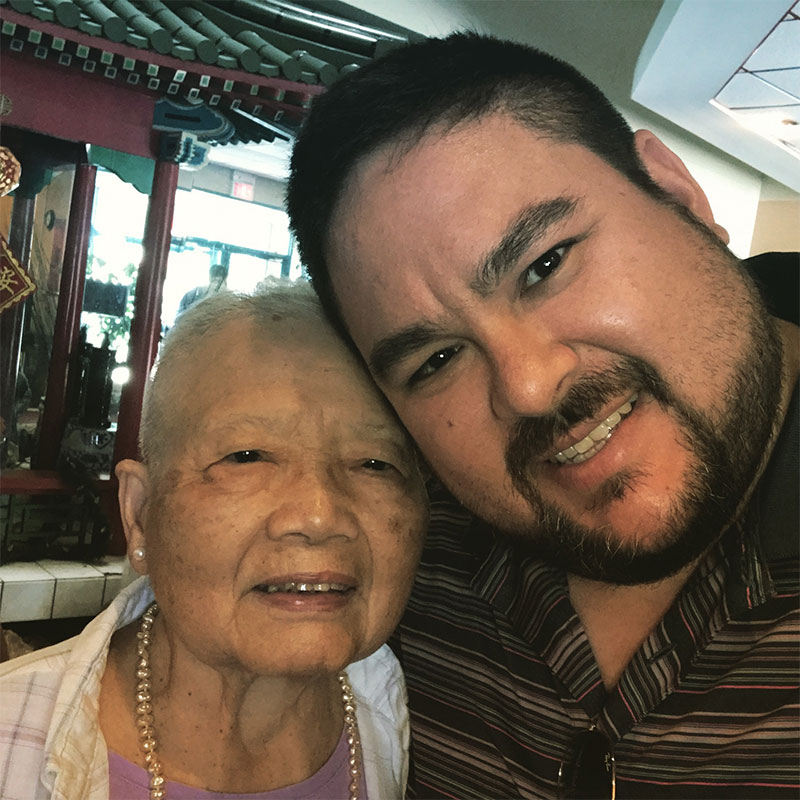
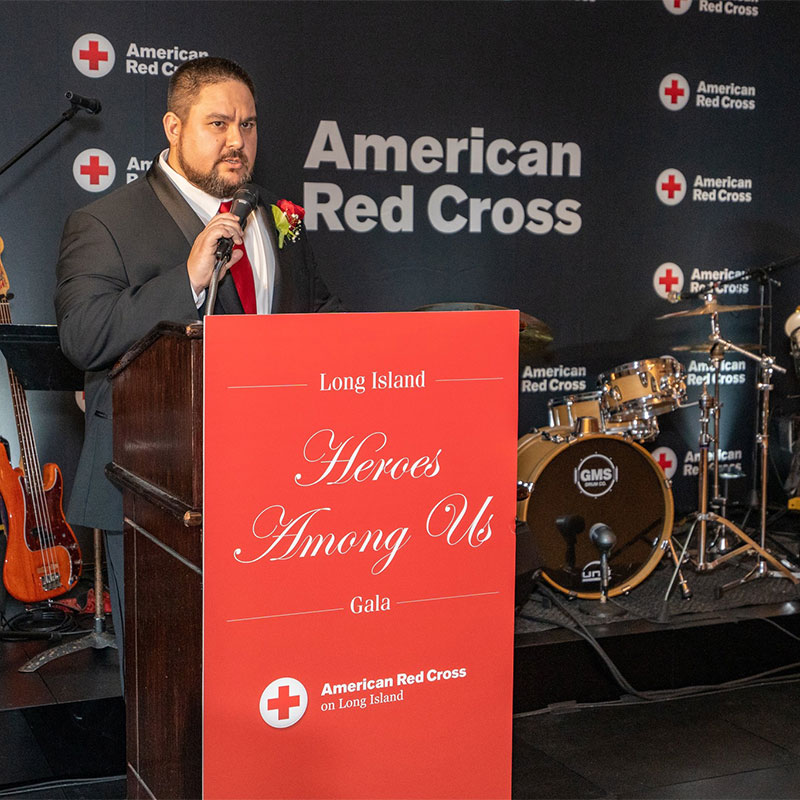
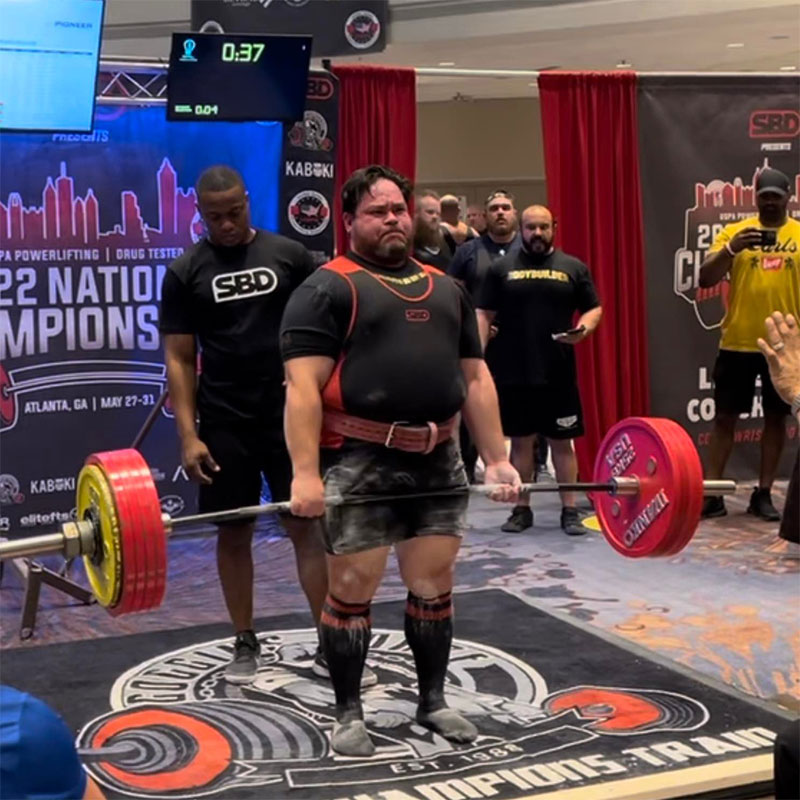
“I’m half Chinese. Both my Chinese grandparents were born in the United States. My grandmother actually was born here, and when she was 2 years old, she moved back to China because of the war and then came back when she was 19. Although she was an American born citizen, she culturally grew up as living in China. My father and his brothers were all born here, and I was born here, making me fourth generation.
My father grew up down south, moved to New York as a teenager, met my mom working at the Garment District when he was still a teenager. My mom comes from an American Jewish family from Brooklyn. I am a New York story. My parents were a mixed-raced couple when it was not as common. I was born and raised in Brooklyn in Canarsie until we moved out to Long Island when I was twelve. Since I could remember, I’ve been Sammy Chu, the Chinese Jew. It’s probably some of the first words I learned to string together. I had a great childhood. I had exposure to both my Chinese heritage and my Jewish heritage and I’m just as comfortable grabbing dim sum on the weekend as I am going to a Jewish deli and having a pastrami and kreplach soup. Even growing up, I had to learn early on that I could fit in nowhere or I could fit in everywhere. Now I’ve modulated it to say I have to make the choice to fit in where I want to fit in.
In Brooklyn in Canarsie, there was a lot of diversity. When you grow up that way, you take it for granted, it’s just normal. Being half Chinese, I realized some people out of curiosity, some people out of ignorance, or some people just straight up being mean, treated me in different regards as either a novelty or even an oddity. When I moved out to Long Island, it was more homogenous, mostly White. I did have a difficult time when I first moved out here. I didn’t feel as if I was treated as a novelty or oddity. It was really apparent aggression and bullying. I got into a lot of fights when I first moved out here. A lot of that stopped because I guess it was a form of assimilation. I joined the wrestling team, and I have the benefit of being a bigger kid, a tougher kid, but I think about kids that don’t have that. They’re not able to defend themselves physically, and sometimes there’s even a language barrier that I didn’t have to deal with.
My Asian roots really became the forefront of my importance when I was appointed Laborer Commissioner for the county. People started reaching out once it was in the newspaper. Asian Americans that lived in Suffolk and even around the island started reaching out to express their happiness that the government became more representative of them. I didn’t really have a great conscious of that going into the position, but starting at that point I really tried to live up to the responsibility of that and realized that as someone who became a higher profile Asian American serving in government and even in business, there is a responsibility.
All of us, whether we’re vulnerable or not, set the tone for those that are in vulnerable positions. The last several years have really brought that home for me and made me more appreciative of the responsibility I have as a leader and as a representative of our community and an everyday ambassador.
My first substantial interactions with the Red Cross were in my days as a county official in the aftermath of Sandy. I was the lead county official for response and recovery after Sandy for Suffolk County and the Red Cross touched Long Islanders in so many different ways. That was the beginning of when I started having a really great appreciation for all the things the Red Cross does. After I left my government role about a year after that, Neela Mukherjee Lockel, who was then the new CEO of Long Island Red Cross, asked if I would consider joining the board and I jumped at the opportunity because by that time, I had grown to have a really great respect and appreciation for the Red Cross in a very immediate way.
Whether it's Sound the Alarm and smoke detector installations, whether it's all the amazing support provided for armed services and families, blood donations and collections, the Red Cross does so many different things for so many different people. That was a real fascination and it only made my appreciation for the Red Cross grow. What I came to surmise over time was that being on all the individual acts and services the Red Cross does, is that it’s a unique organization. So much so that, in terms of service around the world, the Red Cross exists to deliver human compassion whenever it's needed the most. That to me really speaks well to the organization, and not to get sappy, but it speaks well of just humankind. That that sentiment exists and that it’s a sentiment that can be applied universally in so many different places in the world.”
–Sammy Chu (Lindenhurst, NY)
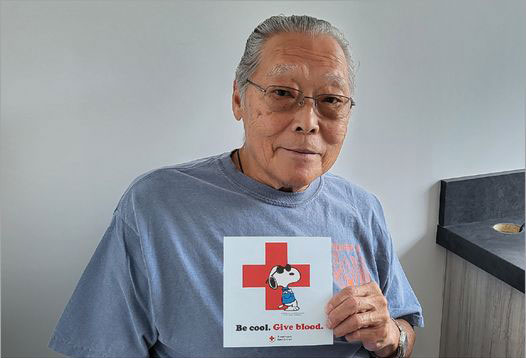
Eddie has been donating blood for a long time. He knows that the need for blood is constant, and that his donations help people in need – accident and burn victims, heart surgery and organ transplant patients, and many more.
Register to donate blood at https://rdcrss.org/3b3IcQP.
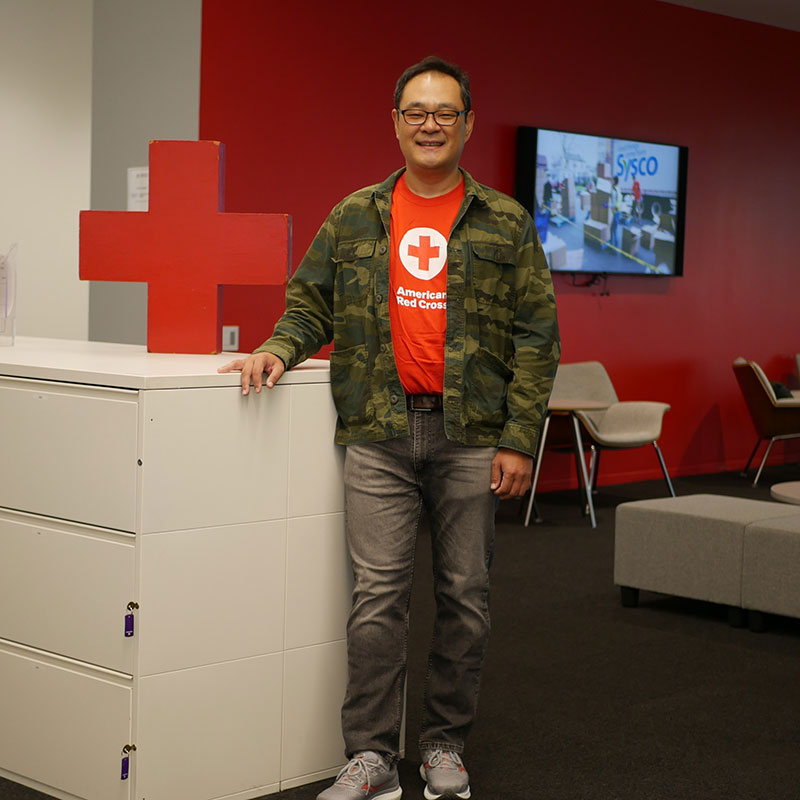
"I am a Korean American. I am an immigrant who came here in my late teens. I just finished my 29th year in the military. It was something that really helped me build my identity as an American – joining the military, going to high school, and learning the language. My drill sergeant would have everybody lined up around Christmas and made sure everyone sang Christmas carols. I did not know how to sing Christmas carols and I was just lip syncing! It was a fond memory, a good thing for me to build my American identity, and I am grateful. I am also a 2000 graduate of NYU Law School. I am a business lawyer. When I came out of law school in 2000, I was still enlisted, until 2004. That’s when I decided I wanted to be a judge advocate and to get experience as a lawyer in the military. I have been a lawyer since 2000, but in the military, I have been a JAG since 2004.
I joined the Red Cross in late 2018, early 2019, and it was because somebody I knew from work was already doing it. What I do now is to teach the intro level class for International Humanitarian Law (IHL). I got started because I am in the army reserve as a judge advocate and in 2018, I was talking to this colleague in my reserve unit. He was telling me about his experience teaching IHL for the Red Cross and he thought I could be a good candidate for what he was doing. So I reached out to IHL program because a lot of IHL instructors have a military background. I attended a couple of sessions and got trained, and that’s how I got started.
We have several different classes that we teach as part of IHL. Most of them are introductory classes for volunteers. We scheduled a few short 2-3 hours sessions and started doing them in February, coinciding with the outbreak of the hostilities in Ukraine. The sessions’ participation was amazing. For the first one, we had over 90 people. What do we teach in the IHL short sessions? It’s training yourself to look at current affairs from the legal framework.
It has been gratifying to see that people have so much interest and are very excited in volunteering for armed conflict scenarios because if you don’t know these rules, you may not know how to act in a situation. It’s that kind of stuff that we teach in these intro classes where we lay the basic foundation of the laws that apply to armed conflict. Any kind, whether international conflict like the Ukraine conflict, or a non-international armed conflict, such as the one we just finished in Afghanistan last year - the rules are about the same. Our role as Red Cross members is to provide humanitarian assistance. In order to do that, there are several principles that we always have to keep in mind. This is at the beginning of every class we have to offer. One is independence, second is neutrality. We are not representing America. We are not representing anybody. The second we start representing during a conflict, we are taking a side. We are becoming a participant, and we lose that ability to perform humanitarian assistance.
There are a lot of things in life that are unexpected and end up changing your life. The Red Cross was yet another one of those things that I really enjoy after several years. It has been very gratifying for me to not only share what I know but to learn from other people’s experiences and their perspectives."
–Sung Hwang (Jackson Heights, NY)
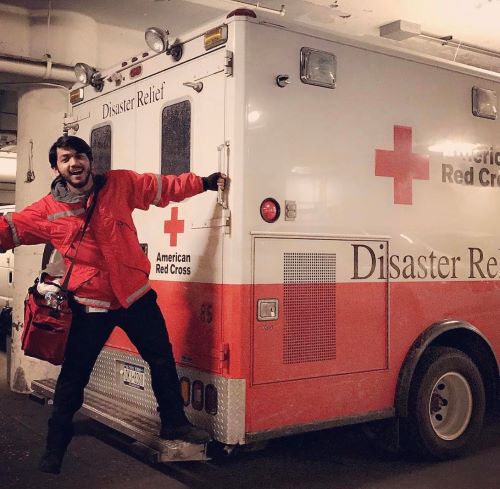
.jpg)
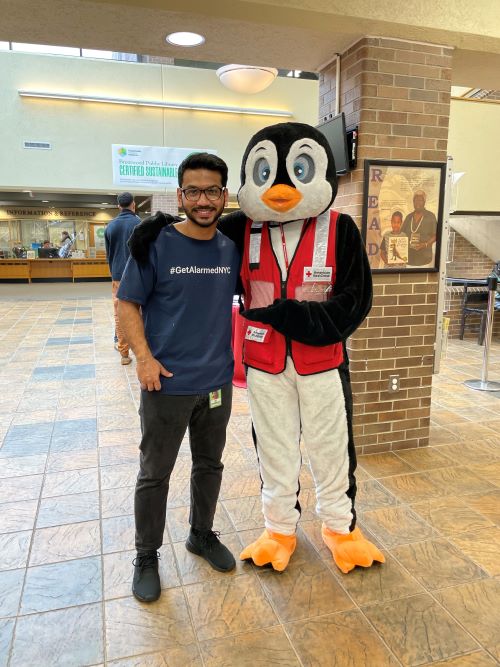
.jpg)
Shah Khan is a medical student and Disaster Action Team supervisor and has been with the Red Cross since 2016. Shah said he found lots of crossovers between what he’s being taught at school and the skills he is learning at the Red Cross. Shah and his family emigrated from Bangladesh to the United States around twenty years ago and settled in Jamaica, Queens.
“We grew up in New York City [and] for the entire time our heritage and culture stuck with us throughout. Especially my parents. Some of the things that stuck with them and me was the language, food, and religion. More so, my parents and how they were able to instill that on me, sending me to Islamic school over the summers as I was growing up. My parents worked very hard as immigrants. My dad was a cab driver. He first started off in a pharmaceutical in Long Island and then he was a cab driver. My mom stayed at home and took care of the family and ran errands and so on,” Shah said.
Shah said that he values his heritage and culture immensely. It has allowed him to bring a different perspective to work and school conversations.
To young AAPI individuals starting off in the workforce, Shah would like to share some helpful advice.
“Embrace your culture wherever you go. Again, that’s what makes you unique. Don’t feel ashamed of it and never let anyone make you feel ashamed of who you are and where you come from. And it depends on you as a person, how much you want it to be a part of you, but if it is something that matters to you, let that resonate and see how that may offer some help in your workforce. It just might. In my experience, it’s always been great. I’ve encountered so many people who are so interested in my culture and I’d be happy to talk to them about it.”
Shah said one of the things that has kept him at the Red Cross is how diverse it is and its mission to help anyone, anywhere, no matter what they look like.
“The Red Cross takes initiatives all over the world to do so especially in such a diverse place like New York City, where the opportunity is really open to anyone of any background, any cultural background, any gender identity, to volunteer. It’s pretty great. As a supervisor for the Red Cross, I’m able to train some of these individuals. I’m able to meet them and work with them. I’ve done so for so many years and it’s been such a great experience because I come into a shift not knowing who the person will be, but getting to know more about them and to work with them and go towards a common goal which is to provide the best possible service to our clients is just great.”
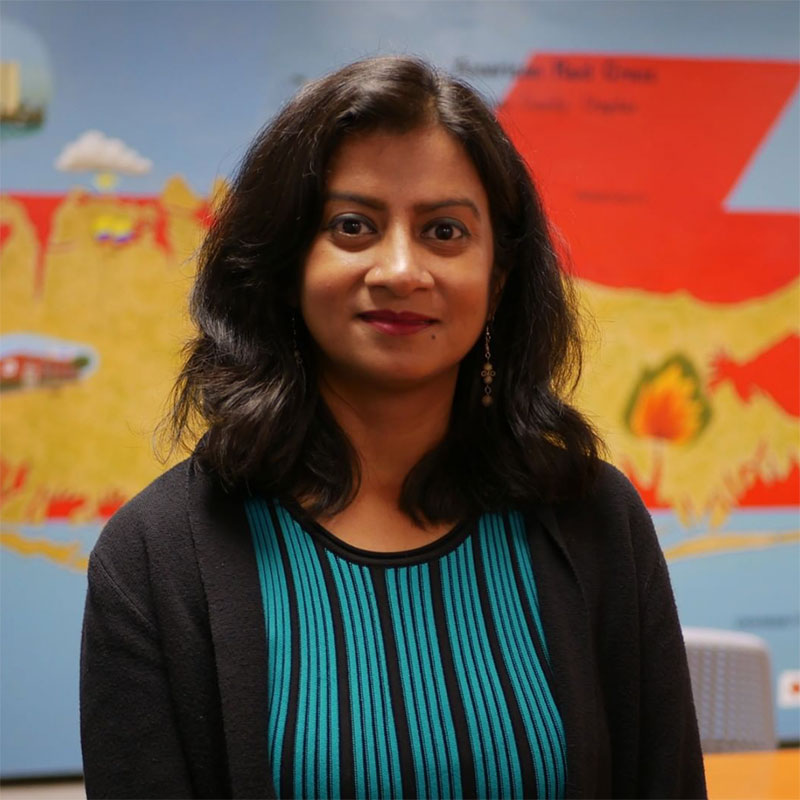
"Until you step out on the field, you don’t know what you are facing. I started with a Home Fire campaign and that was my first experience of being able to see how badly people could be affected by a fire. When I went out, I was fulfilling the educator role, teaching people how to avoid fire accidents and informing them on disaster preparedness. Later I heard that almost 300 lives were saved due to our previous installation of smoke detectors in the homes. I always had that inner need to help others, and working with the Red Cross really gave me that feeling of 'okay I’m really helping people out here'."
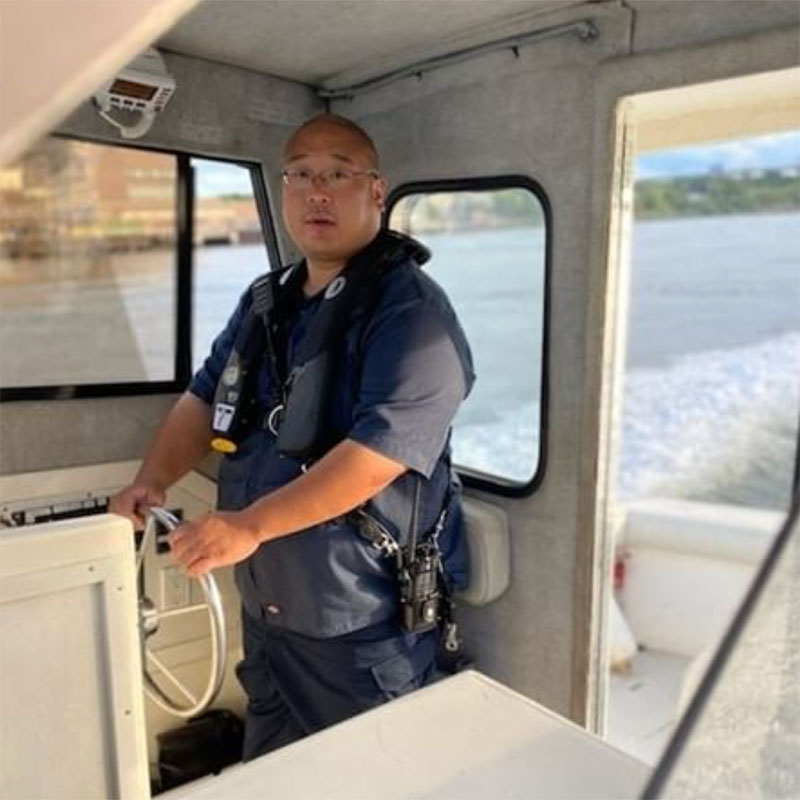

“I actually started as a youth volunteer in 1995. In 2000, I became a customer service assistant at the Queens office. My job was to take care of the day-to-day operations at the Queens area office. When you're a 20-year-old, you're just thinking it’s a job that didn't pay well. But once 9/11 happened, my peripheral just opened up, like a total 360. It was one of those a-ha moments where I finally figured out this is what the Red Cross does and it's amazing how they do it. We are the soldiers of humanity.
This was my first taste of getting into this type of disaster operations, transitioning from community outreach to disaster operations.
Shea Stadium, which is now Citi Field, became a respite center for 9/11 rescue workers that were coming in from all over the country. The Mets organization allowed us to bring in cots and blankets and create a rehab area where people could take a shower, rest up, and then be bused back to Ground Zero. Our volunteers, including myself went to Shea Stadium to assist with the operations over there.
When you see the work we do, whether it be physical, such as providing sheltering and staffing a respite center to even mental health. Mental health was not something I even thought of as a young person, but after 9/11, I realized the mental health aspect of things, of how it can affect an individual, including myself.”
“We worked with really great disaster mental health workers, and they really opened my eyes because of the young volunteers we had. A lot of our volunteers came from Stuyvesant High School, which was in the impact zone of 9/11. Most of them saw things they probably shouldn’t have seen at the World Trade Center. As they evacuated the building, the towers had already crumbled and as they were running, the dust was just chasing them. That type of traumatic experience, when you're dealing with 14- to 18-year-olds, some of them were sleepless. There was sadness, but there was also a lot of hate. We had one individual of the Muslim faith and he was afraid of going out in public.
Mental Health came and said this is something we have to deal with. This is a great opportunity to get all the youngsters in and we had several sessions of like 25 to 30 people. We had an open discussion about what happened and how does everyone feel. It was a good session for them to decompress and when you saw the eyes of those individuals, we changed the lives of those youngsters. I think if we didn't intervene then, their negativity would probably have impacted their lives today.
After doing my time at the Queens chapter, I went over to Disaster Services in staffing. I went into logistics and field communications, and the communication part was really my thing. I was really into radio operations. Technology was something I really wanted to get into. My logistics and field communications experience is the reason why I was hired over at New York City OEM.
9/11 opened an opportunity for me to understand the emergency response aspect of it. And that is why I'm pretty much here now at this agency. I’m now the program manager of our emergency support center here in New York City. It was an evolution in my career.”
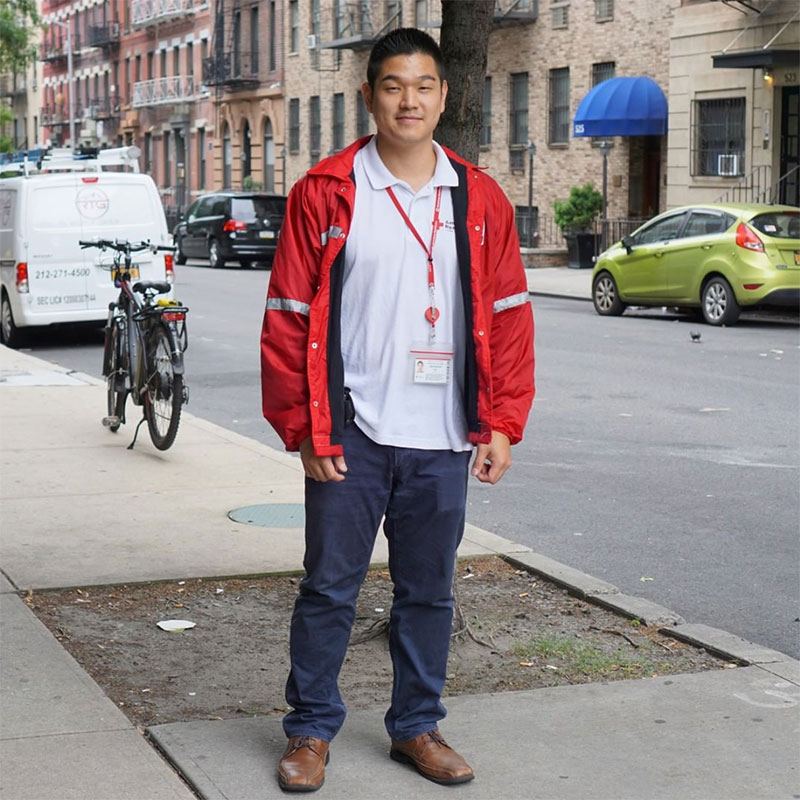
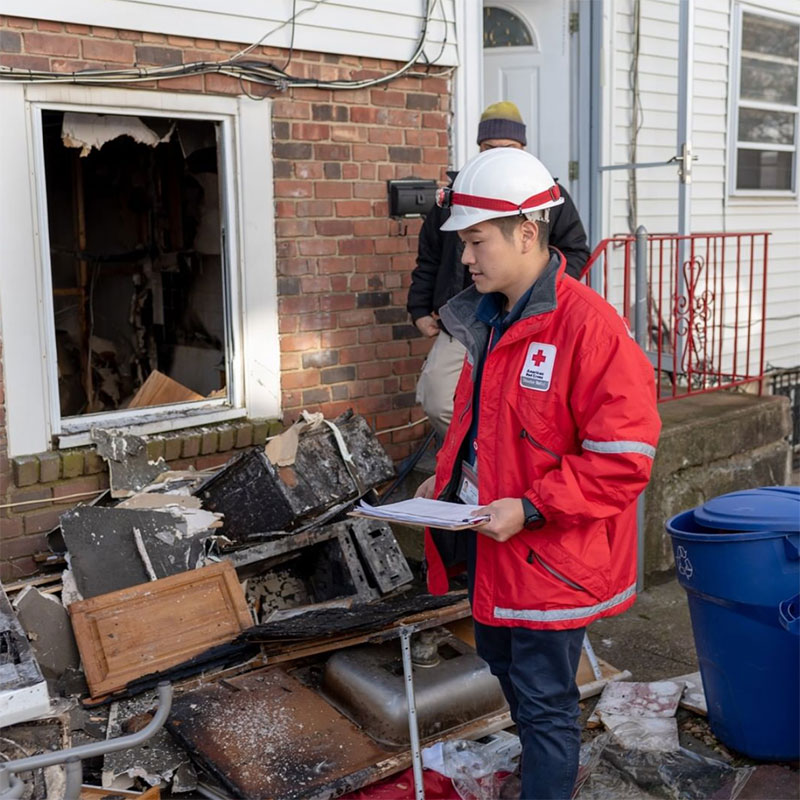
“I started to volunteer when I was a student. After I graduated, I took up a part-time position and applied when a manager position opened up. When I first joined the Red Cross, I was hoping to be a part of something bigger than myself. Personally, I believe that we should live for more than just ourselves. We should think of others and try to help them. I was born and raised in New York City so this is my hometown. It is nice knowing that I can help the city that I grew up in and lived in. Working at the Red Cross gives me the ability to make a difference for those that are affected in my city.”
“As a Response Manager, I make sure that my team has the entire day covered. I help engage the volunteers, schedule them, and provide them with the support that they need. I support the volunteers so that they can perform more and do more for the Red Cross. Also, being a part of the Red Cross, I get to work with amazing people. One of the things that I noticed in the Red Cross is how diverse we are. At the Red Cross, we have different people with diverse backgrounds and skillsets. There are retired teachers, EMT nurses, students, interns, and veterans, etc. It has been very great just to work with so many different kinds of people and see how we can all come together to help the community.”
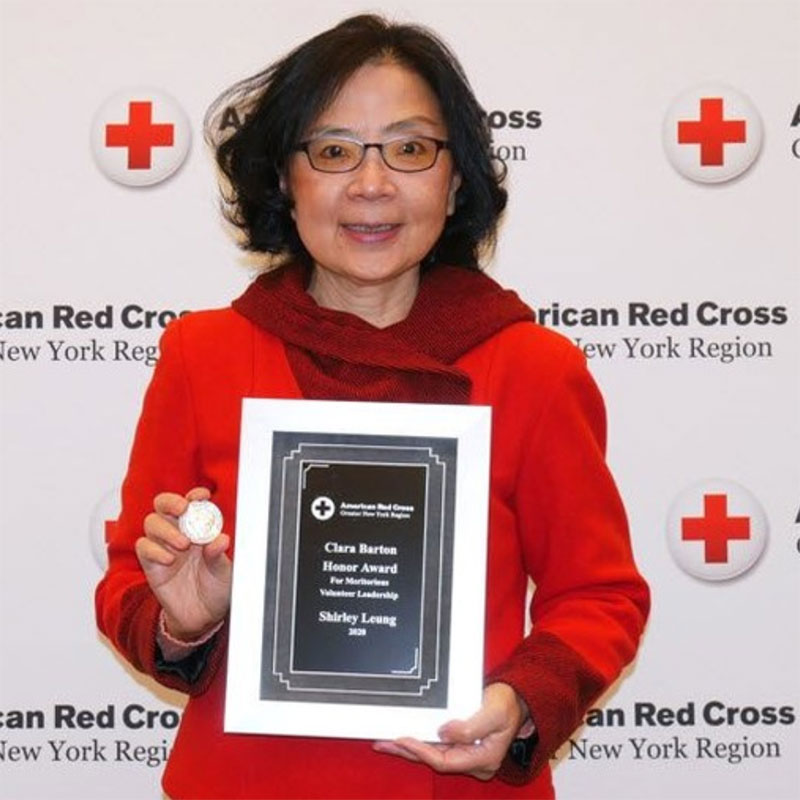
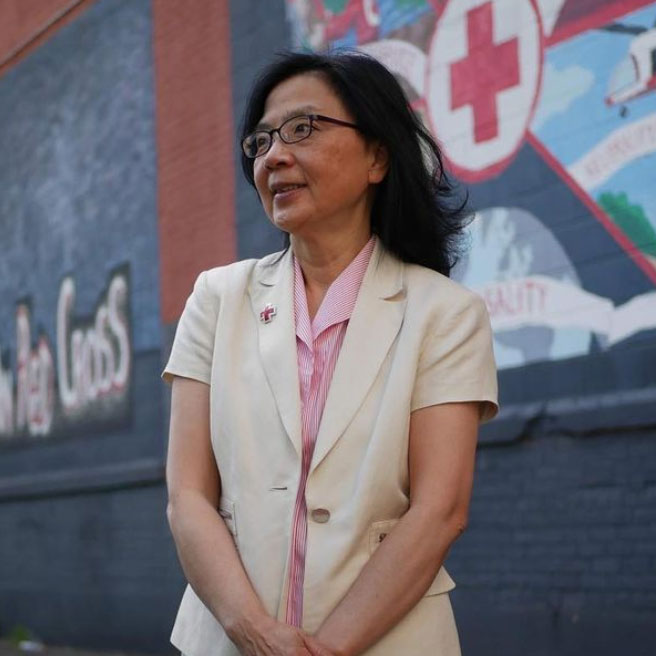
Shirley is a top-notch Disaster Cycle Services mission-driven leader and deliverer of excellence. She has had an impact on training, information management, presentations, government relations and community affairs that is difficult to quantify. She provides invaluable guidance, original problem-solving, an exceptional sense of humor, and a super calm style during tough situations. As a result, Shirley always gets asked to help and always says “yes”. She is a “go to” resource for our division and NHQ too.
When one thinks of Shirley they think synonymously - systems guru! We simply would not have had the same level of success recently on seasonal readiness without the countless hours Shirley selflessly dedicated to this significant piece for our operations in the region and division. Shirley also has Grade A communications. Her talents are as a primary connector and she shines in her roles with local government leaders, especially providing numerous statistics and data for so many communications we present. Literally, from the NYCEM situation room, in the board room to the chat room…she does it all.
Shirley Leung was awarded the Clara Barton Award for Meritorious Volunteer Leadership. The recipients of this award embody the pioneering leadership qualities of our founder and president, Clara Barton, demonstrate the highest level of managerial effectiveness across multiple disciplines and model the highest standards of honesty and integrity.
“I’ve become very adaptable. I can be deployed anywhere and be up and running so that other people can operate as well. I think that it’s not easy to become adaptable. I was the government representative for the Red Cross at the State Operation Center during the wildfires in California. Sitting in the EOC overnight might sound crazy, but it really helped me learn a lot about how these kinds of crises are managed by multiple agencies at the federal level. I was at the state EOC and so we were working with FEMA and other state level agencies. We basically helped operate in shelters as well as with citizen evacuation. It’s complicated because when you see a fire on the screen it seems to be spreading one way but once the wind changes direction, the fire will spread to a completely different location. So, you really have to monitor everything. We had to report to national headquarters to approve evacuations and shelter operations. It’s important to work with our partners to make sure that if something’s wrong in the shelters, it can get fixed. You have to make sure you ask for help because that’s the way to adapt.”
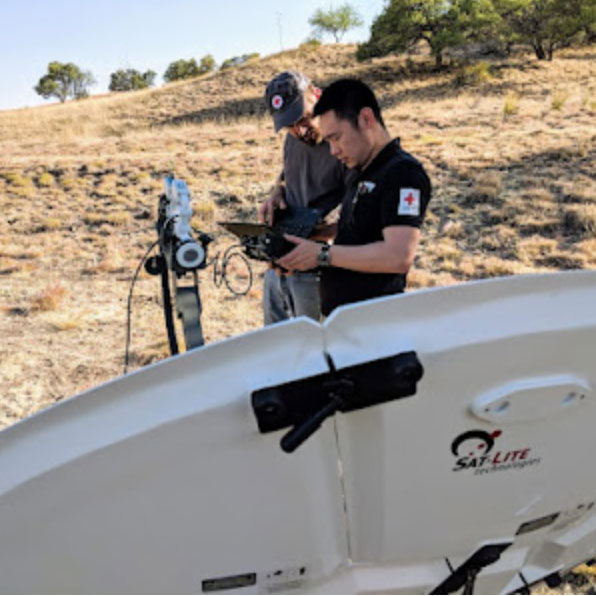
Andy Li has been with the Red Cross for nine years working as an IT Specialist at the Greater New York HQ. He recently joined the international roster as an International Disaster Response Delegate following a competitive application process and two intense trainings. In his new role, he will have the opportunity to deploy internationally while specifically serving in an IT capacity.
Click here to read the full interview with Andy Li on our Greater New York blog.
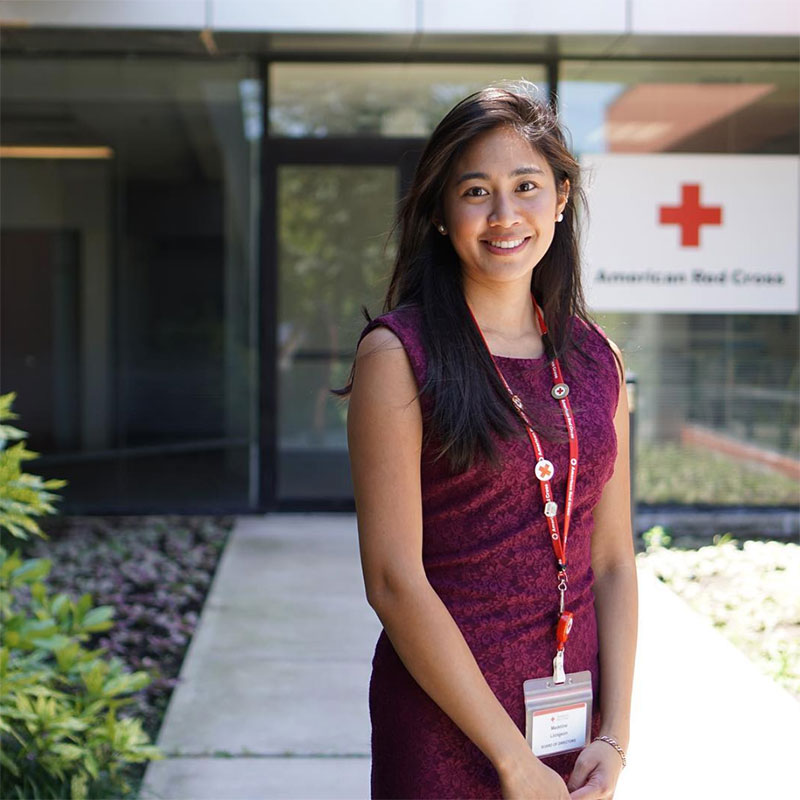
“Originally I had worked for the Red Cross as a Safety Town instructor. Safety Town is a program where we teach incoming kindergarteners disaster prevention skills so we teach them how to wash their hands, look both ways before crossing the street, how to call 911, and they work with the fire and police departments. Since I had been working with that program for so long, the board thought I would be a good fit to educate them about youth matters. It’s funny even now as a board member after 3 years, I’m still the youngest one there. I’m only 24 and everyone else is in their mid 50’s so there’s a little bit of an age gap, but whenever I'm sitting among all of these incredibly influential people that are so generous and compassionate about their time, I’m overwhelmed with a sense of pride and joy knowing that I am a part of this team that is so involved in making sure that the Red Cross follows that mission.“
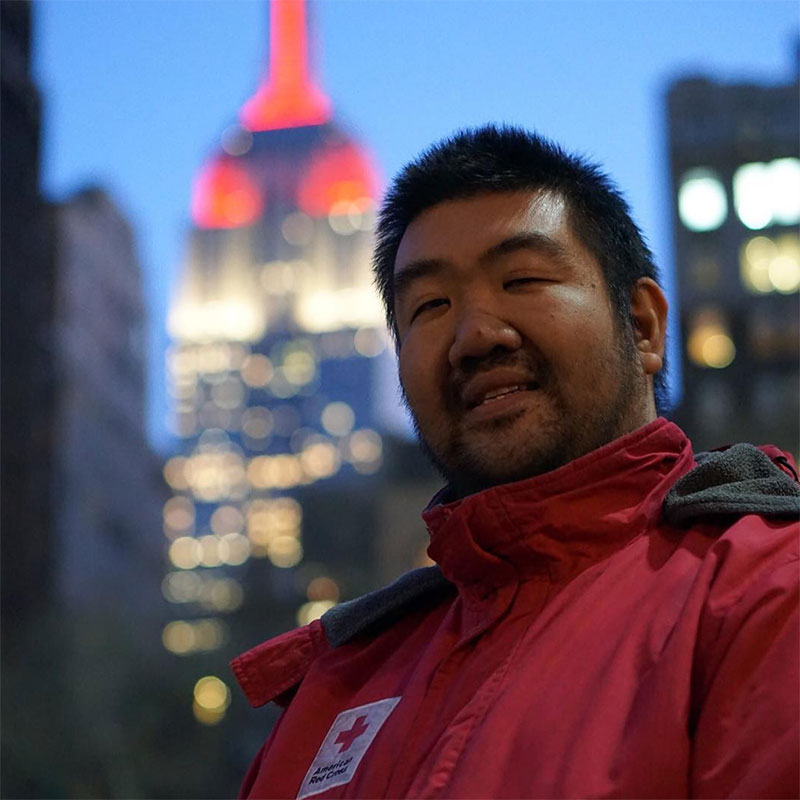
"When someone told me about Red Cross, I immediately thought that all they do is teach CPR, first aid, and lifeguarding. I was a little hesitant, but my friend motivated me to join. I started out doing community outreach–handing out flyers and pamphlets at health fairs, street fairs. And then from there I became a First Aid/CPR instructor. I liked the camaraderie, the people, the various departments that we could merge into. There are a lot of different roles, and if you find one role that doesn’t quite fit you, there’s always a role that might be a better fit. It’s just like shoes and clothes.”
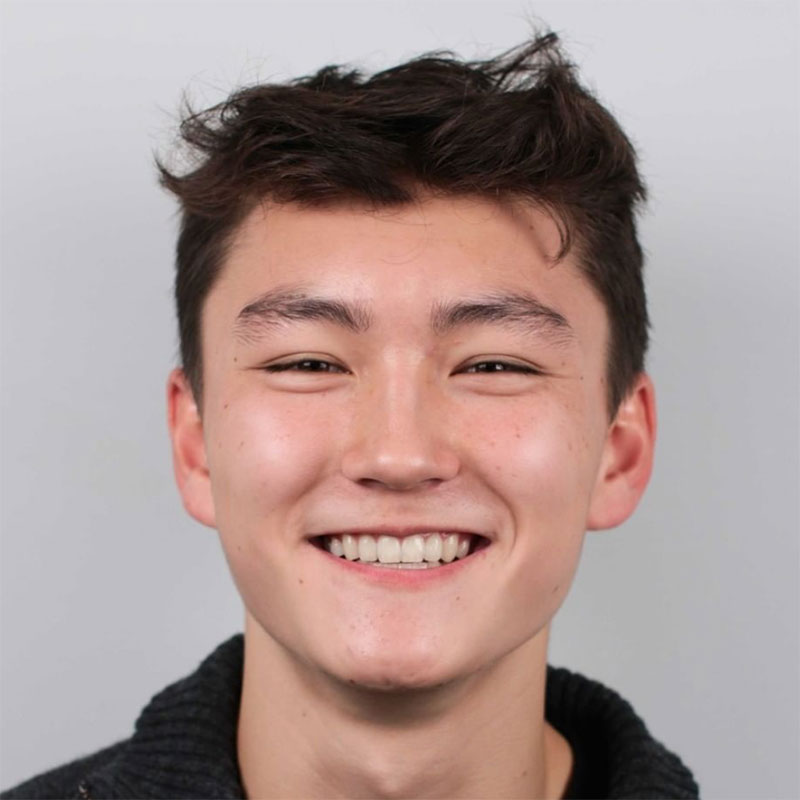
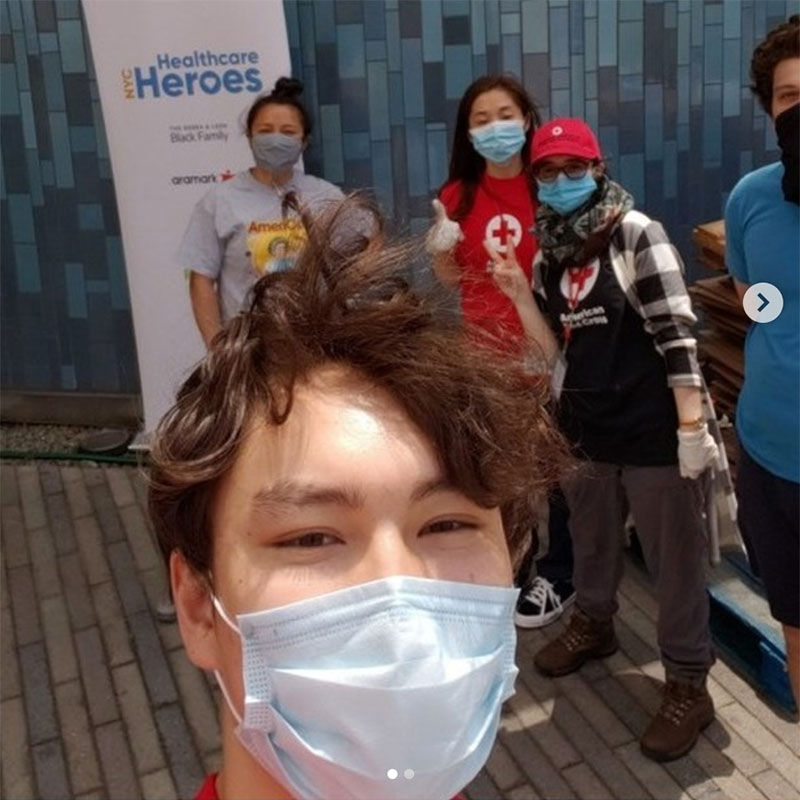
“I first started with the Red Cross last June working in volunteer services. At that time, it was the beginning of COVID, so I was really on the hunt for something to do that summer when I was stuck at home in quarantine. My family, friends, and past supervisors at different internships inspired me to work in this field to continue contributing, making the world a better place, and helping people who are disadvantaged in whatever way. I was very excited to work with the Red Cross, especially in volunteer services because such a large part of the Red Cross as a workforce is volunteers. I felt that it was more important than ever to get involved in the nonprofit and humanitarian world in some capacity.
I definitely found what I was looking for. I think for some time now I've known I wanted to go into humanitarianism and joining the Red Cross has been great. I feel indebted to the organization because I've had the opportunity to explore so many of my different interests and work in different departments. It's one thing to always hear about the Red Cross’ service and how its workforce is full of good-hearted people, but then when you actually get to be a part of it, you understand how amazing everyone that works with the organization is and how everyone's always operating on different projects for the organization. Volunteering has made me appreciate the work that other volunteers also do.”
“One of the things that I'm most grateful for in the past years I've been with the Red Cross is that every single supervisor I've had has been incredibly welcoming to me, giving me as many opportunities as I can ask for and offered to network with me outside of the Red Cross to give more advice and help me make better decisions in terms of career and grad school. That mentorship is always invaluable. When I worked in International Services, we did a project with the Red Cross’ delegation to the UN, and the head of that, Richard Blewett, met with me several times outside of work via zoom to talk about my career and give networking advice. My best advice is to seek out guidance from people who have been in your position and have been successful in the field that you want to go into because they inevitably know more than you do and are often happy to help.
Within the Red Cross, at the end of last summer, I created a cohort model, which has been running for three cycles and I think has improved the way that we manage interns and boosted engagement. I think that's been my most lasting contribution to the organization.”
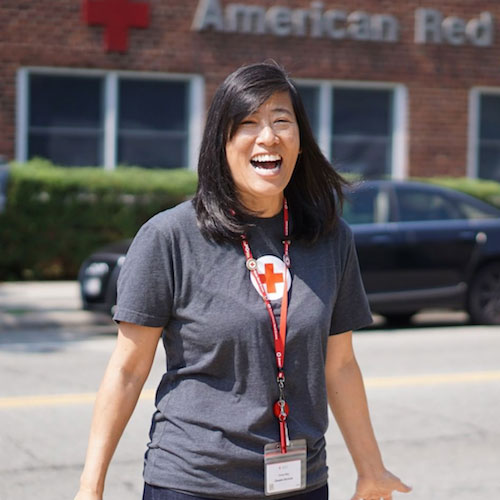
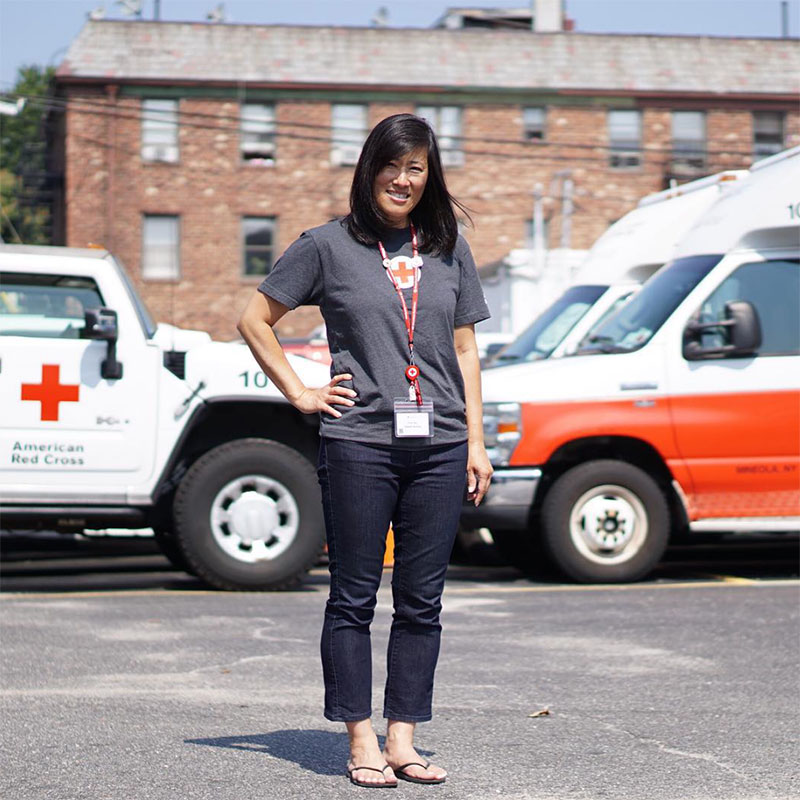
When we had the Main Street fire in Port Washington, the Red Cross opened up a shelter. It was very emotional for me to see all the families with the kids and knowing that they had nowhere to go for two days. They were going to have a tough road ahead of them. I was more or less attending to their needs, but I knew I had to keep it together because otherwise, I wouldn’t be helpful to them. There was one family that had two little boys that wouldn’t go to school the next morning because their backpacks had gone up in flames and I felt so terrible. I sent one of my volunteers out to get me two new backpacks ASAP. When she came back, thankfully they liked them and they were willing to go to school the next day. The greatest thing happened the following morning. Their principle strolled through the doors of the shelter and said with a big happy smile 'Hello boys! I’m here to take you to school.' It was great."
“My last deployment to Chico, California was for the Paradise Wildfires. There was this one woman and she told me that if her dog had not woken her up she would not be alive today. It turns out that the house next door to her home was on fire. She was taking a midday nap when her dog came to her and was pawing her. She managed to grab her grandmother’s ring which was on the counter as she was heading out the front door, the only possession that she grabbed while she was trying to escape. She hopped into a friend’s car, trying to head out of town. There was only one road out of town so it was gridlocked and the heat was so intense, it popped their back tire. You have to imagine when all this was going on, the sky was pitch black. Even though it was daytime you couldn’t see a thing. There were explosion’s every couple of minutes from the propane tanks. It was so frightening to be running for your life, and as you are running for your life seeing sights that no one should ever have to see. This one image that will forever be seared into her mind was of a horse with its tail on fire. It was running right by her just like in the movies in slow motion, but she managed to get out of town. It was just so sad to hear her talk about her beloved town. I can only imagine how I would feel if Port Washington was burned to the ground.”
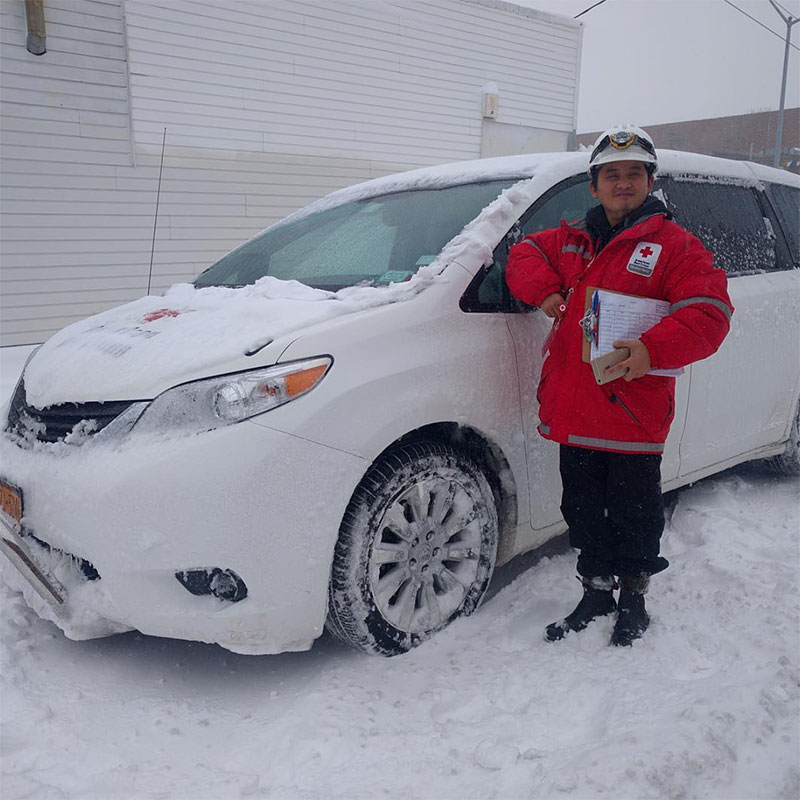
“Volunteering for the Red Cross keeps me alert. I feel more relaxed, comfortable and happy that I can contribute to society by helping others.”
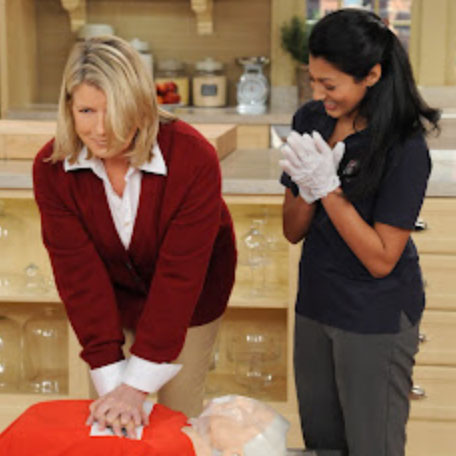
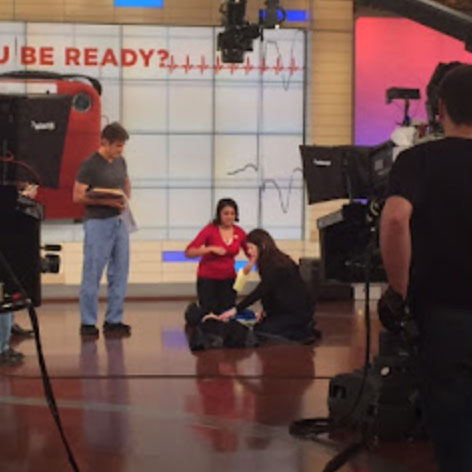
Lipica Shah joined the American Red Cross in Greater New York ten years ago as a part-time, on-call CPR/First Aid instructor. Today, Shah serves as a volunteer instructor and as a CPR and First Aid spokesperson. She is also a full-time actor. As part of her Red Cross career, Shah has done demos on various television programs including The Dr. Oz Show, The Martha Stewart Show, the TODAY Show, Good Day NY (and many more) to share vital life-saving information and encourage viewers to learn CPR and First Aid.
Click here to read the full interview with Lipica Shah on our Greater New York blog.
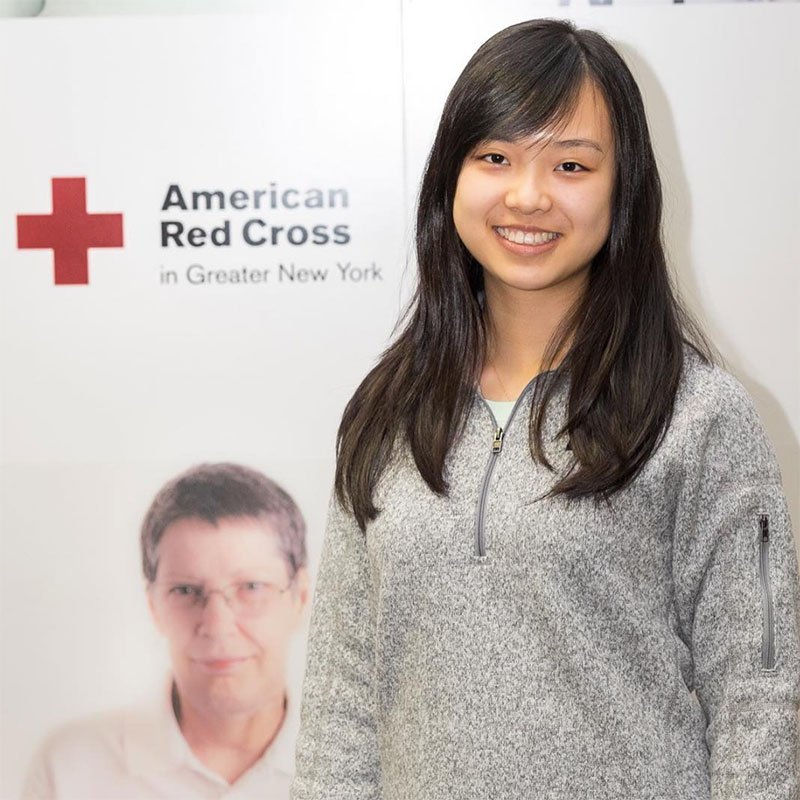
“My first contact with the Red Cross was back in 2008 during the Sichuan earthquake in China. My grandparents live in that region, and I used to visit that place every year. My grandparents survived; I remember how everything in the town that they lived in almost got completely destroyed and that’s when the Red Cross stepped in. They provided things like food, water and tents for people to sleep in at night. And the organization literally helped so many people including my grandparents get back on their feet, and that was when I decided that I wanted to join the Red Cross. So when I was a freshman in high school, I became one of the founding members of the Red Cross club at my school and I’ve been a volunteer ever since. “
